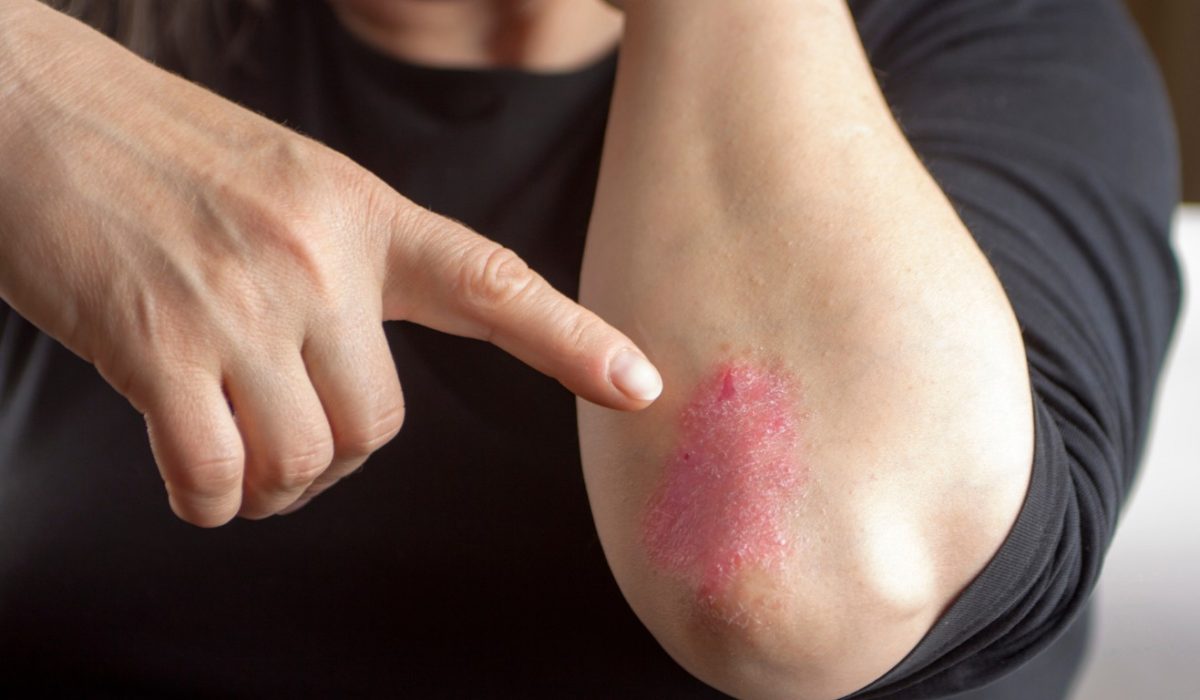
Psoriasis is a chronic autoimmune disease that affects the skin, causing red, scaly patches that can be itchy and painful. It is caused by an overactive immune system, which causes the skin cells to grow too quickly, resulting in the accumulation of dead skin cells on the surface of the skin. While there is no known cure for psoriasis, Ayurveda offers a holistic approach to treating the disease, which aims to address the root cause of the condition and alleviate the symptoms.
Understanding Psoriasis
Psoriasis affects approximately 125 million people worldwide, and it is a chronic condition that can have a significant impact on a person’s quality of life. The condition is characterized by red, scaly patches on the skin, which can be itchy and painful. The patches can appear anywhere on the body, but they are most commonly found on the elbows, knees, scalp, and lower back.
The cause of psoriasis is believed to be an autoimmune disorder, in which the body’s immune system mistakenly attacks healthy skin cells. This attack triggers an inflammatory response, which causes the skin cells to grow too quickly, resulting in the accumulation of dead skin cells on the surface of the skin.
Traditional Western treatments for psoriasis include topical creams, phototherapy, and systemic medications. These treatments aim to reduce inflammation, slow down the growth of skin cells, and relieve symptoms. However, these treatments may have side effects and may not work for everyone.
Ayurveda and Psoriasis
Ayurveda is a holistic system of medicine that originated in India more than 5,000 years ago. It focuses on maintaining balance in the body, mind, and spirit, to promote overall health and wellness. According to Ayurveda, psoriasis is caused by an imbalance in the body’s doshas, or energies, specifically the Pitta dosha. Pitta dosha is responsible for digestion, metabolism, and transformation in the body, and an imbalance in this dosha can cause skin disorders, such as psoriasis.
Ayurveda’s approach to treating psoriasis is to identify the root cause of the imbalance and correct it through diet, lifestyle changes, and herbal remedies. Ayurveda recognizes that each individual is unique and that treatment should be tailored to the individual’s constitution and imbalances.
Diet and Lifestyle Changes
Ayurveda emphasizes the importance of a healthy diet and lifestyle to maintain balance in the body. According to Ayurveda, a diet that is high in Pitta aggravating foods, such as spicy and acidic foods, can worsen psoriasis symptoms. Instead, an Ayurvedic diet for psoriasis should be cooling, hydrating, and anti-inflammatory.
Ayurveda recommends consuming foods that are rich in antioxidants and anti-inflammatory compounds, such as fresh fruits and vegetables, whole grains, and healthy fats. Ayurveda also recommends incorporating cooling foods, such as cucumber, watermelon, and coconut water, into the diet to reduce inflammation.
Ayurveda also recommends incorporating daily practices, such as meditation and yoga, to reduce stress and promote relaxation. Stress can worsen psoriasis symptoms, and these practices can help to reduce stress and promote overall well-being.
Ayurveda can significantly help reduce the symptoms of psosisis. Asking your Ayurveda consultant for a diet a psoriasis patient can observe along with medication is the best way to deal with this disease. We have treated a number of psoris patients who have now almost 100% recovered and enjoying a healthy life.
